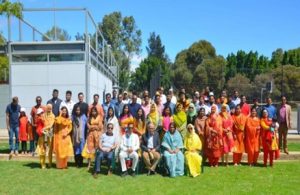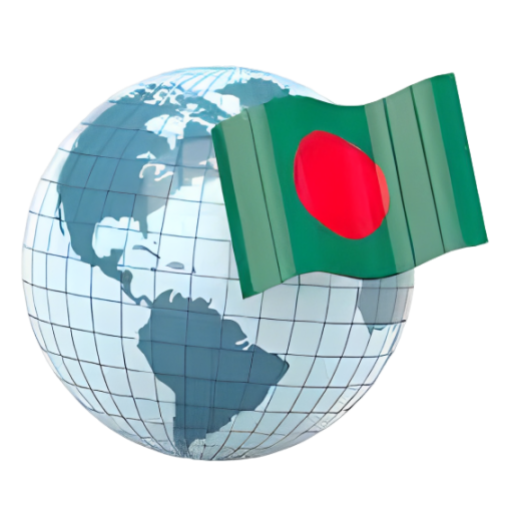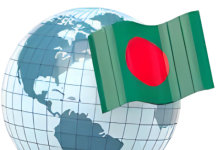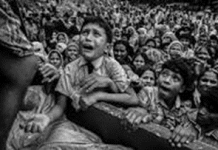
Australia was the first developed nation in the world to recognize Bangladesh after it became a sovereign nation following its 1971 independence war. While Bangladesh has emerged as a thriving nation, the Bangladesh-Australia relationship has grown beyond mere geo-political and economic terms as Australia-Bangladesh bilateral relationship celebrated its fiftieth year in 2022. Like any other bilateral relationships, public diplomacy has become an increasingly important tool in facilitating the partnership. Education, and especially higher education, has become one of the most important aspects of this bilateral relationship as it creates and provides the platform to engage and communicate with others.
Since its independence, Bangladesh has grown immensely as a nation while its people have kept exploring new opportunities, representing their identities through their robust imagination, innovative concepts, diligence and resilience within and beyond the geographical border of Bangladesh. Hence, we can find Bangladeshi diaspora in every part of the world, contributing to the social, political and economic landscape of different countries as conscious citizens while maintaining their Bangladeshi identity through Bangla language and culture.
Australia is one of those countries which have become a newly found home for thousands of Bangladeshi-born immigrants over the years. And education has been the most significant means of this migration. Therefore, to celebrate the Bangladesh-Australia relationship, we need to acknowledge the power of inclusive and accessible education in public (people-to-people) diplomacy.
A diplomatic relationship between two countries cannot be based merely on political and economic terms. While every
While every
bilateral relationship consists of a unique complex web of interrelationships between a diverse range of actors in many different fields, people-to-people diplomacy has turned out to be an increasingly important tool in the ‘toolbox’ of foreign policy.
Courtesy: Bangladeshi Student Society University of South Australia
And what can be a better tool than ‘education’ which actually creates and provides the platform to communicate and engage with others? Through education, all values from personal to social to national can be highlighted and gradually exchanged – is a very effective way to create national branding and international recognition too.
Education, particularly higher education, has been one of the key factors of the Australia and Bangladesh diplomatic relationship which was formally established by the then Australian Prime Minister Gough Whitlam and Bangabandhu Sheikh Mujibur Rahman in 1972. Education was prioritized by the leaders of these two nations who were in power around the same time, not only on an international platform, but domestically too. As an academic who was born after the end of both of their Prime Ministerial tenures, I find it really fascinating as their forward thinking has continued to serve and impact generations in both countries. Both Whitlam and Mujib not only acknowledged the importance of education but also recognized how accessible and inclusive education can foster equity and equality. Therefore, education has always been at the heart of the Australia-Bangladesh bilateral relationship, which at present, encompasses trade, development, environment, security, culture, sports collaboration as well as education.
To many Bangladeshis, Australia is known as a major provider in higher education. While this reputation is built on international student experience in Australian universities and in wider communities, it has helped Australia to participate in and influence its relationship with Bangladesh, more specifically Bangladeshi people. Even those who have never come or will come to Australia have a sense of affiliation to the nation, as their family or friends have gone to Australia to study and then might have decided to stay back as skilled migrants. Besides, those students who have returned to Bangladesh after completing their education in Australia continue to be important links between the two countries as they hold important positions both within and outside the government. Having a better understanding of the ‘Australian way’ helps them to better negotiate and build stronger relationships between Bangladesh and Australia in many different ways.
Bangladeshi born international students, like all other international students, translate the concept of cross-cultural communication into the practice of dialogue with people from different cultures in the diverse Australian society. And through such people-to-people interaction, they promote cultural diplomacy. In the last fifty years it has increasingly established, developed, and sustained relationships with others within wider Australian society. Educational institutions, and specifically Australian universities enable them to proactively claim a cultural diplomacy role which can be evident within the society and goes beyond the traditional diplomatic roles played by the embassies, high-commissions, consulates and the diplomatic corps. While Bangladeshi students may not be the largest population of international students, their important role as conduits between two cultures cannot be ignored.
Therefore, Bangladeshi students in Australian universities are today’s new informal cultural diplomats. Such people-to-people diplomacy through an inclusive and accessible education system provides symbolic legitimacy and increases sympathy for Australia as a nation to a large majority of Bangladeshi people. Foreign policy needs this legitimacy and sympathy, especially among intellectuals. By creating a Bangladeshi diaspora who have become familiar with Australian socio-cultural discourse through university, and especially with some members now a part of the Australian academic community, Australia can now claim such legitimacy and sympathy within the broader Bangladeshi community living in Australia and people of Bangladesh.
I myself have been a part of this people-to-people diplomacy as I came here as an international student and have now been proudly calling Australia ‘home’ for the last twenty two years. While Bangladesh is my ‘birth land’, after building a life in this adopted community and culture with my family, Australia has become my ‘homeland’. I am now a proud citizen of these two countries, proudly sing two national anthems and am a proud fan of two cricket teams. The legacy of people-to-people diplomacy which was initiated by Whitlam and Mujib long before I was born, changed my life, and continues to change the lives of others.
______________________________________________________________________
 Dr Nira (Nirupoma) Rahman is an academic specializing in Educational Design and Student Engagement in the Arts Teaching Innovation (ATI) in the Faculty of Arts, University of Melbourne. Her work is focused towards developing a more inclusive, applicable, transformative and internationalized Arts and Humanities Education. Dr Rahman’s passion for her work in education, music and community inspires her to find ways to start and continue the robust discussion around the various diverse and intersectional identities present within the community and how that can be more inclusive. She is a published author in Bangla Language and also regularly writes for international media (in English and Bangla) on various topics that connect her academic interests to her personal insights around culture, language and identity. e-mail: nira.rahman@unimelb.edu.au
Dr Nira (Nirupoma) Rahman is an academic specializing in Educational Design and Student Engagement in the Arts Teaching Innovation (ATI) in the Faculty of Arts, University of Melbourne. Her work is focused towards developing a more inclusive, applicable, transformative and internationalized Arts and Humanities Education. Dr Rahman’s passion for her work in education, music and community inspires her to find ways to start and continue the robust discussion around the various diverse and intersectional identities present within the community and how that can be more inclusive. She is a published author in Bangla Language and also regularly writes for international media (in English and Bangla) on various topics that connect her academic interests to her personal insights around culture, language and identity. e-mail: nira.rahman@unimelb.edu.au





